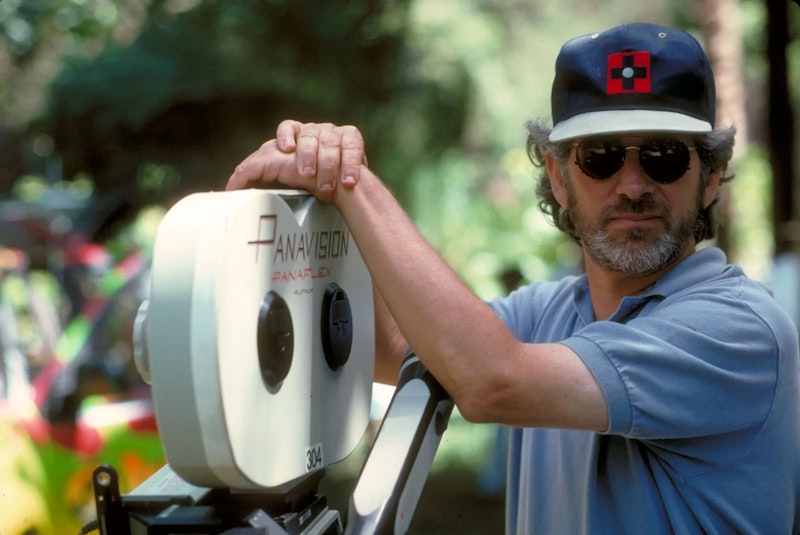The New York Times’ list of the 100 best films of the 21st century so far resulted in a fairly predictable summation. There was no surprise in Bong Joon-ho’s Parasite’s place at the top of the list, as judging by the dominance of English-language films, it's likely that many contributors selected the South Korean social thriller as their sole representation for international cinema. Other leading titles have also been widely celebrated for some time; Mulholland Drive was hailed as a surrealist masterpiece prior to the death of the David Lynch, and Paul Thomas Anderson’s There Will Be Blood has been frequently compared to Citizen Kane, as both center on tragic anti-heroes that fall victim to their indulgences.
While he didn’t have a film ranked within the Top 25, Christopher Nolan was the champion of the Times’ list; five of his efforts were included. Nolan’s dominance as a critical darling and commercial figure made him a predictable favorite, but other directors with multiple films included the aforementioned Anderson, Joel and Ethan Coen, Quentin Tarantino, Martin Scorsese, David Fincher, and Alfonso Cuaron. While the list could be described as broadly populist, the single most successful director in the history of Hollywood was underrepresented. At #94, the science fiction mystery thriller Minority Report was the only entry from Steven Spielberg’s catalog.
Minority Report’s may have been too low: the adaptation of a Phillip K. Dick story has become more relevant in the two decades since its release. While its commentary on the surveillance state and the overreach of law enforcement were powerful within the immediate aftermath of 9/11, Spielberg’s foresight into the rapid application of technology is eerie. Minority Report is the type of thought-provoking, visually dazzling blockbuster that was hard to make in 2002, and would be impossible today. It was willed into existence by the star power of Tom Cruise, whose fame hasn’t dwindled since its release.
An argument could be made that Spielberg is in the shadow of his 20th century achievements, as many of his early films are among the most influential in history. Jaws practically invented the summer blockbuster, Indiana Jones became one of the most successful adventure franchises of all-time, E.T. the Extra Terrestrial was one of the few “monocultural” event films of its era, Saving Private Ryan featured a brutal depiction of World War II combat, and Schindler’s List is recognized (by some) as the definitive film about the Holocaust. The fact that masterpieces like The Sugarland Express, Empire of the Sun, and The Color Purple are cited as “lesser work” are an indication of Spielberg’s undisputed status as the “King of Hollywood.”
The first half of Spielberg’s career has benefited from nostalgia. Spielberg’s efforts have grown more ambitious within the dawn of the digital era. If the notion of found family was a theme within everything from Jaws to Schindler’s List, then Spielberg’s attention was drawn to broken institutions within the last two decades.
Spielberg’s most underappreciated work was the result of a collaboration with the only English-language filmmaker whose achievements could rival his, as he inherited A.I. Artificial Intelligence after the death of Stanley Kubrick, who died only weeks after completing his final masterpiece Eyes Wide Shut in 1999. Public sentiment regarding a film has rarely been so off-base; A.I. Artificial Intelligence is a twisted take on the Pinocchio story that examined the link between love and pain, and couldn’t be further from the “cloyingly sentimental” weepie that some accused it of. The same maturity was present in Catch Me If You Can, Spielberg’s biographical caper that featured one of the best performances of Leonardo DiCaprio’s career. While there’s more joy within the true story of the teenage con artist Frank Abagnale Jr., it was yet another film centered on a Peter Pan-esque figure who grew up too fast.
War of the Worlds served as a direct analogy to the Twin Towers attack, as the Martian invaders from H.G. Wells’ novel represented the same unseen enemy that tormented Americans in 2001. With Munich, Spielberg became the rare filmmaker to create a thoughtful text about the Israel-Palestine conflict, cynically reflecting the never-ending cycle of revenge.
Spielberg’s interest in American politics didn’t wane; he proved to be a more mature filmmaker than the more naive director who had made Amistad and 1941 years prior. Lincoln offered a look at the political scheming required to pass an amendment, and gave Daniel Day-Lewis the platform to inhabit the role of the martyred resident. Bridge of Spies and The Post may have been more classically optimistic about the merits of American idealism, but both films lionized individuals above the political parties, movements, and positions that they represented.
While none of Spielberg’s films could be described as “for hire” jobs, he managed to make the most of assignments weighed down by the baggage of expectations. With Ready Player One, Spielberg transformed a fantasy of Generation X nostalgia into a profound celebration of human connection. 1961’s West Side Story was regarded as one of the greatest musicals of all-time, but Spielberg’s modern update featured breathtaking visceral imagery from cinematographer Janusz Kamiński.
Most deserving of inclusion was The Fabelmans, a semi-autobiographical story about a Jewish teenager who found a voice within filmmaking, despite the overwhelming pressure of his parents’ crumbled marriage. The Fabelmans may be the skeleton key of Spielberg’s entire career.

